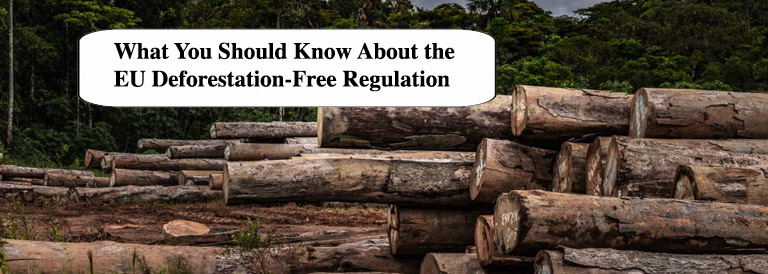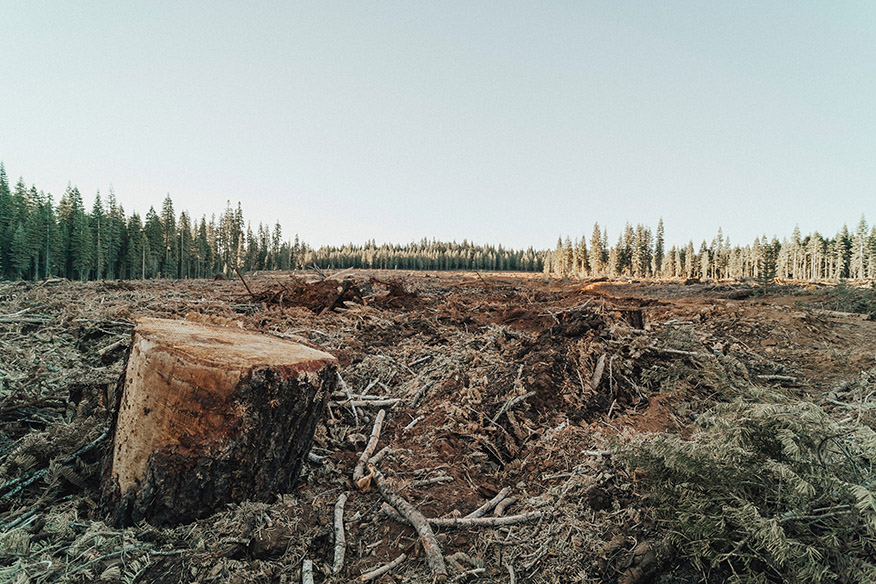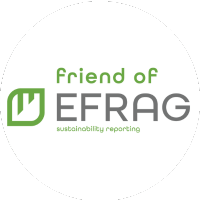
What is the EU Deforestation-Free Regulation (EUDR)?
The European Union Deforestation-Free Regulation (EUDR), which is expected to be adopted spring 2023, will attempt to limit deforestation caused by seven key agricultural and forestry commodities. Essentially, the regulation will make it illegal for companies to import or export these key products into the EU market unless they are deemed “deforestation-free”.
Who is affected by the EUDR and what products does it apply to?
All companies, regardless of whether they are EU-based or not, will be required to conduct strict due diligence if they import or export the following commodities within the EU market: cattle, cocoa, coffee, palm oil, rubber, soy, and timber, and any products derived from them (such as beef, hides, leather, chocolate and charcoal). These commodities were chosen after being identified as the main contributors to deforestation. However, the list of commodities is expected to be reviewed regularly, which may result in additional products being added overtime as deforestation patterns change.

All companies, regardless of whether they are EU-based or not, will be required to conduct strict due diligence if they import or export the following commodities within the EU market: cattle, cocoa, coffee, palm oil, rubber, soy, and timber, and any products derived from them (such as beef, hides, leather, chocolate and charcoal). These commodities were chosen after being identified as the main contributors to deforestation. However, the list of commodities is expected to be reviewed regularly, which may result in additional products being added overtime as deforestation patterns change.
What is the timeline for companies to report?
To comply with the EU Deforestation-Free Regulation, operators and traders must demonstrate that their products were produced on land that was not subject to deforestation after 31 December 2020, and that they are in compliance with all applicable laws in force in the country of production.
The EUDR will enter into force twenty days after it is published in the Official Journal of the EU, which is expected to happen around May 2023. Large companies will have 18 months to prepare before they are obligated to abide by the new rules. Smaller enterprises will be given 24 months to prepare. The EU regulation has been characterized by commentators as a “paradigm shift” in the fight against deforestation, as it marks a transition from voluntary initiatives to mandatory legislation.
Read more here: https://ec.europa.eu/commission/presscorner/detail/en/ip_22_7444
What is the EU Deforestation-Free Regulation (EUDR)?
The European Union Deforestation-Free Regulation (EUDR), which is expected to be adopted spring 2023, will attempt to limit deforestation caused by seven key agricultural and forestry commodities. Essentially, the regulation will make it illegal for companies to import or export these key products into the EU market unless they are deemed “deforestation-free”.
Who is affected by the EUDR and what products does it apply to?
All companies, regardless of whether they are EU-based or not, will be required to conduct strict due diligence if they import or export the following commodities within the EU market: cattle, cocoa, coffee, palm oil, rubber, soy, and timber, and any products derived from them (such as beef, hides, leather, chocolate and charcoal). These commodities were chosen after being identified as the main contributors to deforestation. However, the list of commodities is expected to be reviewed regularly, which may result in additional products being added overtime as deforestation patterns change.

What is the timeline for companies to report?
To comply with the EU Deforestation-Free Regulation, operators and traders must demonstrate that their products were produced on land that was not subject to deforestation after 31 December 2020, and that they are in compliance with all applicable laws in force in the country of production. The EUDR will enter into force twenty days after it is published in the Official Journal of the EU, which is expected to happen around May 2023. Large companies will have 18 months to prepare before they are obligated to abide by the new rules. Smaller enterprises will be given 24 months to prepare. The EU regulation has been characterized by commentators as a “paradigm shift” in the fight against deforestation, as it marks a transition from voluntary initiatives to mandatory legislation.
Read more here: https://ec.europa.eu/commission/presscorner/detail/en/ip_22_7444



